June 20, 2025 | 10:11 GMT +7
June 20, 2025 | 10:11 GMT +7
Hotline: 0913.378.918
June 20, 2025 | 10:11 GMT +7
Hotline: 0913.378.918
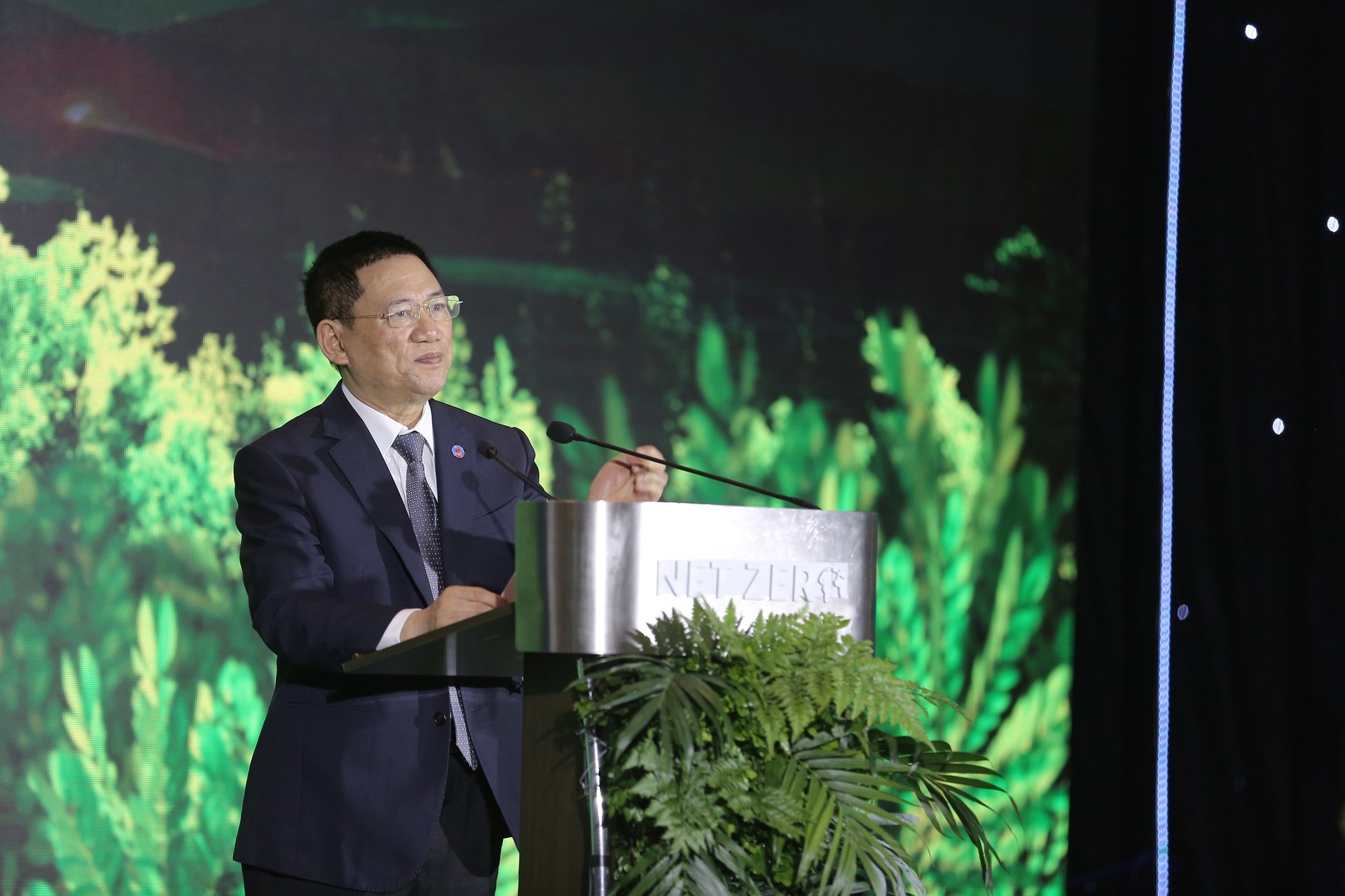
Minister of Finance Ho Duc Phoc speaks at the Net Zero seminar.
In November 2021, at the 26th Conference of the Parties to the United Nations Framework Convention on Climate Change COP26, Vietnam made a series of commitments, including a net zero carbon emission target in 2050.
To achieve this goal, according to Minister of Finance Ho Duc Phoc, over the past time, many financial policies have been issued to concretize policies, facilitating the mobilization and attraction of investment resources into green growth. In particular, the most obvious is the tax policy system oriented to environmental protection, expressed through two groups of policies.
Firstly, policies to limit acts causing environmental pollution, such as environmental protection tax, natural resource tax, the excise tax on goods that cause harm to the environment, etc.
Second, policies to support and encourage activities to protect the environment, reduce pollution and the impact of climate change. These include incentives for corporate income tax, value-added tax, etc., for businesses with new investment projects in environmental protection.
According to Minister Ho Duc Phoc, in addition to prioritizing public resources, the Ministry of Finance will actively coordinate with relevant ministries and sectors in researching solutions to mobilize private resources and international organizations.
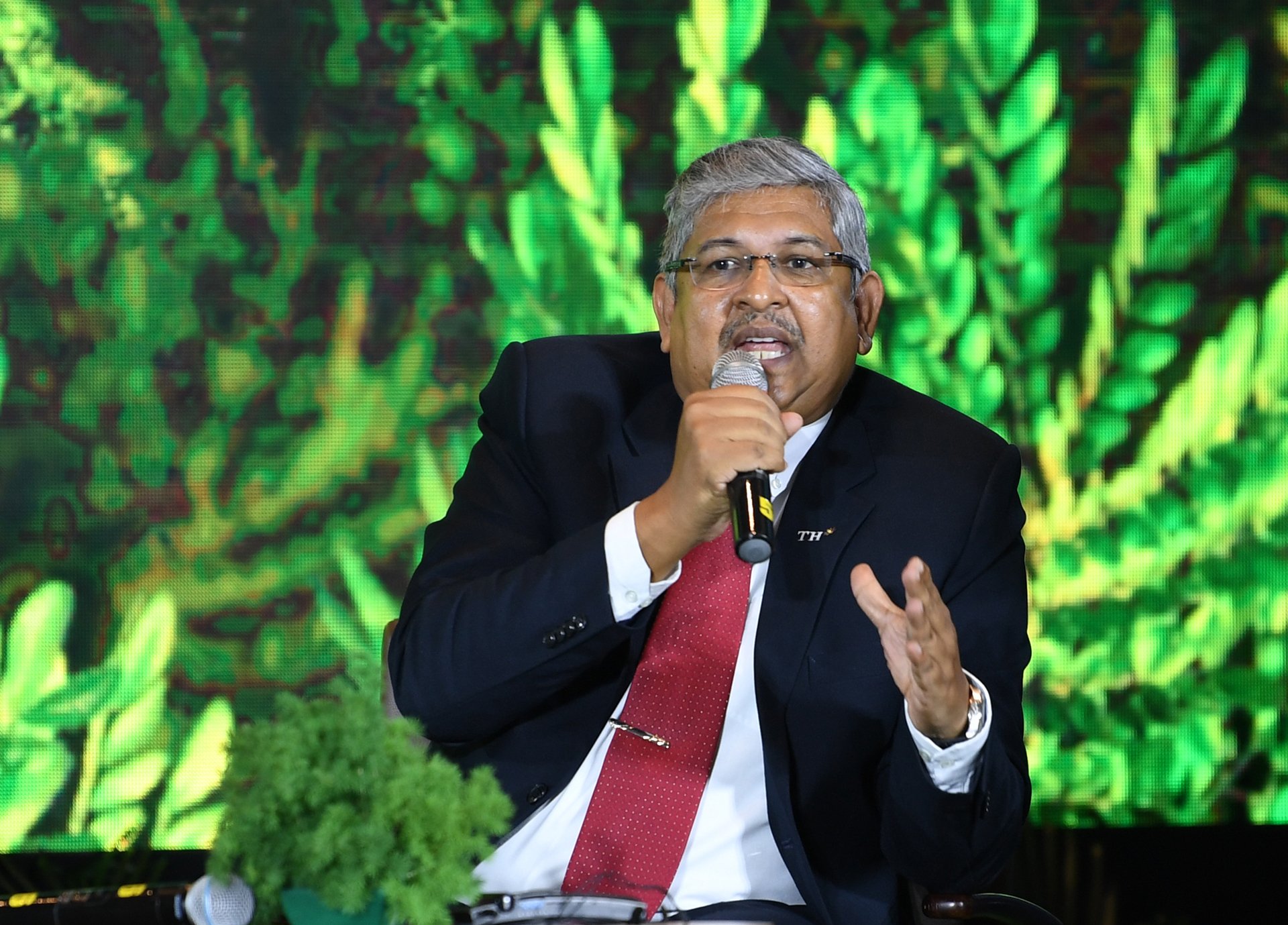
Arghya Mandal - CEO of TH Milk Joint Stock Company, said that TH Group has continuously launched initiatives to reduce emissions since its establishment.
To achieve the goal of net zero emissions by 2050, the Government has set forth very drastic action plans, quickly implementing many policy contents so businesses can have a legal corridor in this field.
The fact that decisions on action plans towards a circular economy are about to be issued makes businesses commit to developing in harmony with nature and cherishing Mother Nature as TH to realize his principles," Mandal shared.
The CEO of TH Milk Joint Stock Company also emphasized that TH always accompanies the Government's commitments to climate change and Net Zero at COP26. Since its establishment, TH Group has continuously launched initiatives to reduce emissions.
Since 2018, the Group has set a target of reducing direct greenhouse gas emissions at the farm and factory by an average of 15% per year in the natural greenhouse gas emission range. Also, the total scope of direct and indirect greenhouse gas emissions per unit of product at TH factories and farms decreased by an average of 15% per year.
As a result, with many synchronous solutions and drastic actions, in 2022, TH's farm system has reduced, on average more than 20% of emissions per product unit, exceeding the set plan.
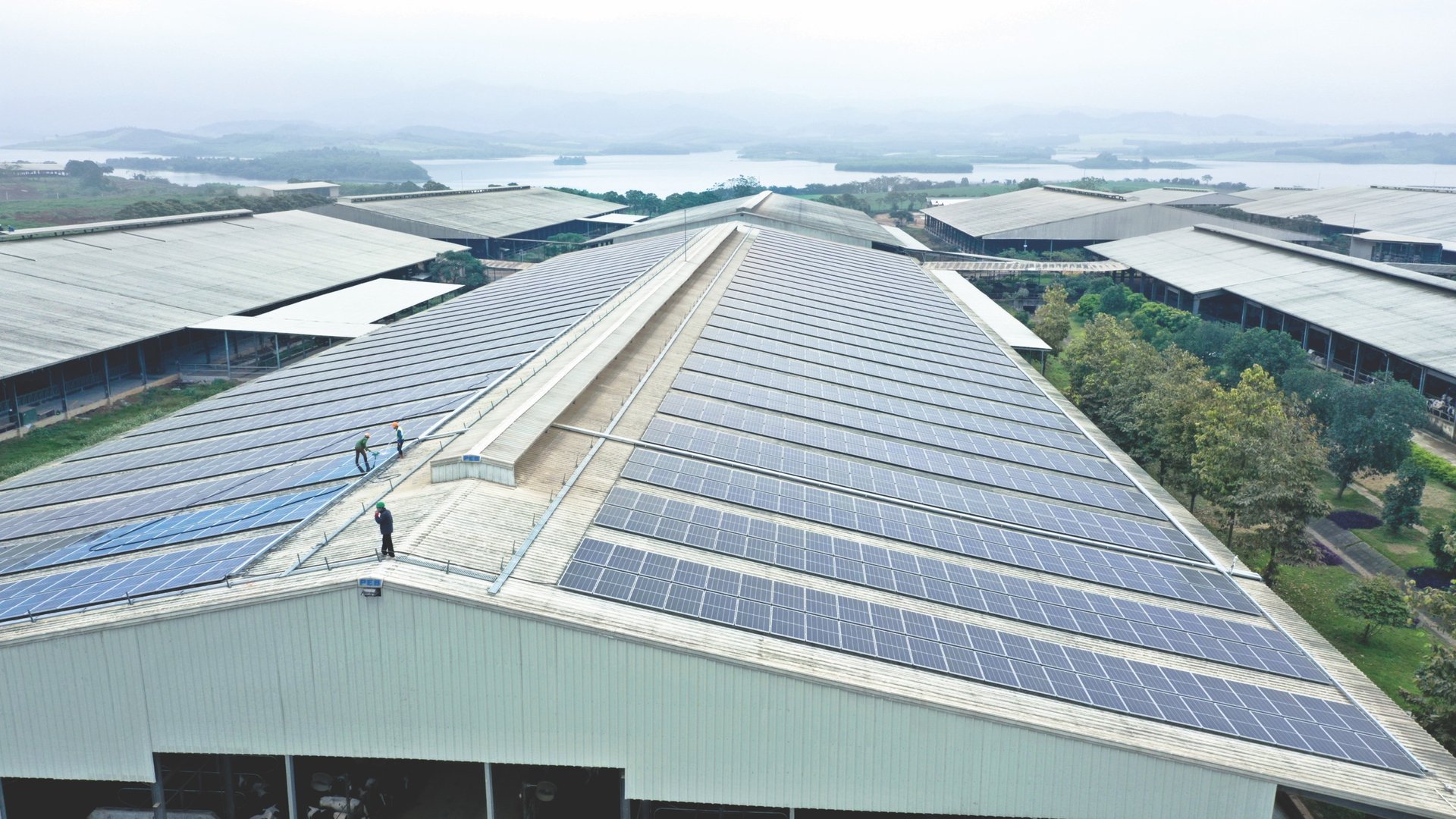
Solar power on the roof of TH dairy farm.
In particular, at TH Milk Joint Stock Company (THM) for two consecutive years from 2019 to 2020, the average emission of 0.168kg CO2/liter of milk (Scope 1&2) was achieved. In 2022, it will drop sharply to 0.103kg CO2/product unit, significantly lower than the emission reduction results of dairy factories in Vietnam and Southeast Asia.
In addition, in 2022, TH Group reduced petroleum consumption at the plant by converting from FO oil (fossil fuel) to biomass fuel (burning wood chips by-products from the wood processing industry). With this change, the Group's factory system will reduce its total greenhouse gas emissions by more than 85% compared to 2021.
All lights in TH's farm and factory have been converted from incandescent to LED, saving 5 million kWh of electricity, equivalent to approximately 4,000 tons of CO2.
In the context that the power industry is under a lot of pressure to ensure the supply of renewable energy projects, including rooftop solar power, as TH is doing, is considered a vital solution contributing to the diversified power supply, cutting greenhouse gases, and ensuring national energy security.
Prominent models that strongly contribute to moving towards "Net Zero" in TH can include the 2.8 km long "biological fence" at Dalatmilk farm in Lam Dong, which is continuously maintained, cared for, and developed.
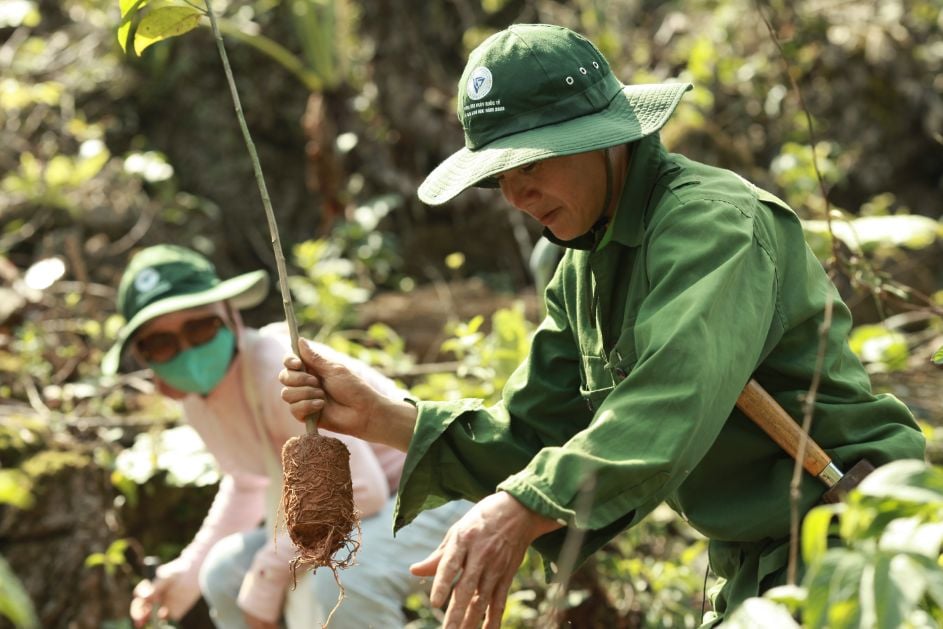
TH Group joins hands to "patch the forest" in Van Ho commune, Van Ho district, Son La province, May 2023.
"We have a comprehensive emission reduction orientation for all stages of the closed production process, from production to consumption. Therefore, in the context that "green transformation" has become an urgent requirement for businesses today, it is something that TH has been doing for a long time," said Arghya Mandal.
For businesses to continue on the "Net Zero" journey, policy leverage is a critical factor and a legal basis for businesses to have grounds and standards for all specific actions. This is also a positive signal, showing that Vietnam is taking specific and drastic actions to participate more in the race toward "Net Zero".
To promote policies to encourage "Net Zero" at businesses, the General Director of TH Milk Joint Stock Company made three main points: First, to ensure information transparency and sharing. Businesses that want to accompany the Government on the "Net Zero" journey will need a transparent information corridor, policies, and experience sharing from pioneering companies.
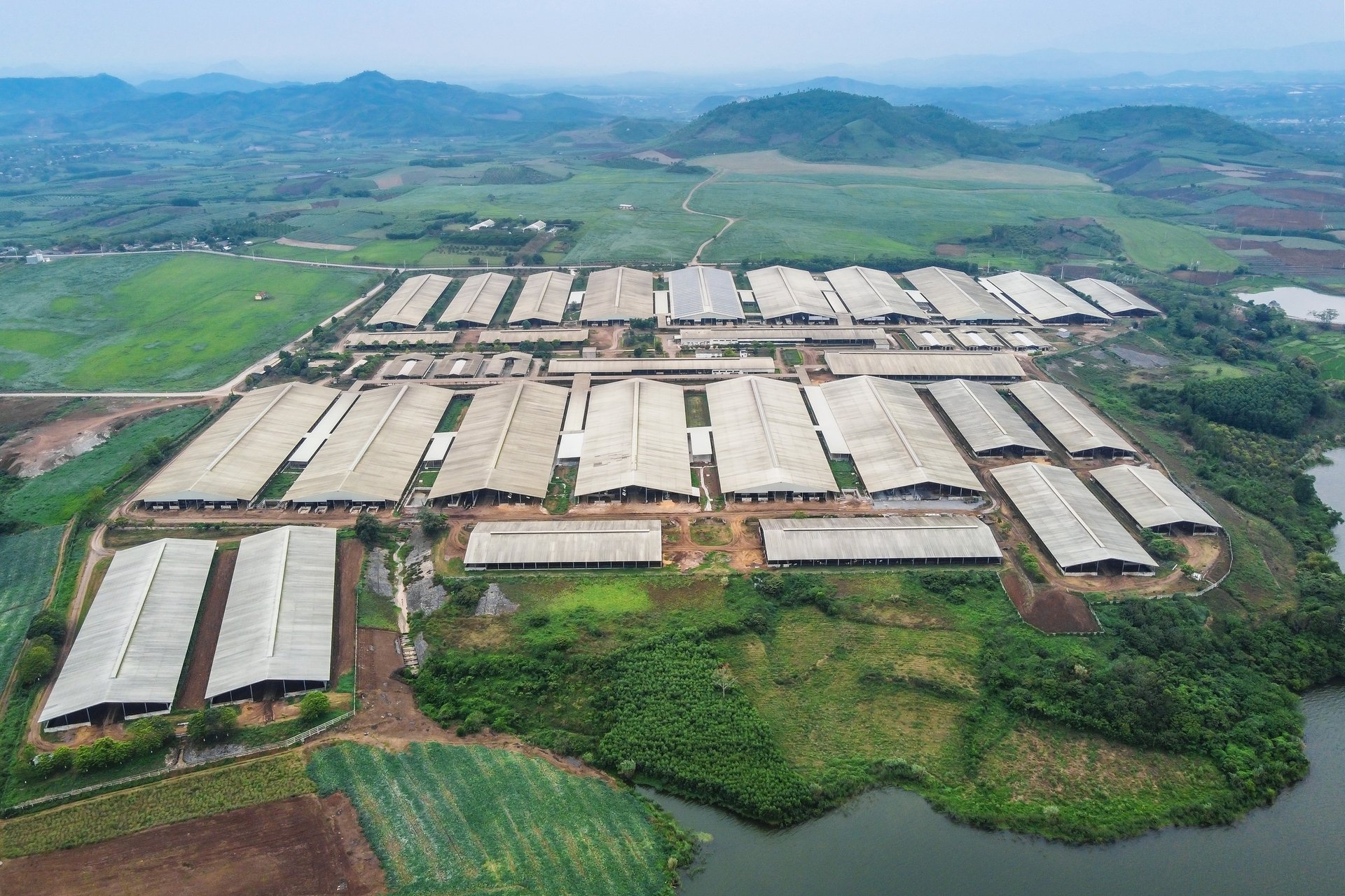
A dairy farm of TH Milk in Nghe An.
Second, there is a specific roadmap for each phase of emission reduction. TH Group hopes the Government will soon issue an overall strategy and a specific roadmap for each stage.
Policies related to "Net Zero" should include raising awareness and enhancing communication between government agencies, local authorities, the business community, and citizens.
Finally, the Government should have preferential policies to encourage businesses to implement "Net Zero" initiatives. For example, businesses can enjoy tax exemptions and reductions when participating in sustainable development activities, environmental protection, afforestation, etc.
"The Government's efforts motivate us to participate more actively, more strongly, and invest more systematically and longer in the green transition. And from its true story on the journey to "Net Zero", TH Group hopes to inspire as well as motivate the business community and the Vietnamese people to remain steadfast in their "commitment to action" in environmental protection", shared Arghya Mandal.
Translated by: Ha Phuc
/2025/06/17/3942-2-143243_548.jpg)
(VAN) Recently, in Sweden, the Secretary of the Binh Dinh Provincial Party Committee presented the Investment Registration Certificate for the 'Polyester Fabric Recycling Complex' project to SYRE Impact-AB Company.
/2025/06/12/3721-2-202745_83.jpg)
(VAN) TH made an impression at Seoul Food 2025 with its line of natural beverages, paving the way for Vietnamese food products to enter the South Korean market.

(VAN) Soc Trang's success in rice exports stems from a strategy of developing fragrant and specialty rice cultivation areas and standardizing production toward low-emission practices.
/2025/06/11/1311-5-120811_839.jpg)
(VAN) The pig farming industry is facing the challenge of comprehensive restructuring to meet requirements for quality, safety, traceability, and market expansion both domestically and for export.

(VAN) Vietnam considers participating in ALGROALBA in order to expand agricultural production, coordinate the assessment and effective exploitation potential land.
/2025/06/05/5314-1-184727_407.jpg)
(VAN) From seemingly worthless fish scales and skin, enzymes and lactic ferments can transform by-products into peptides, opening a sustainable, effective business direction and elevating Vietnamese seafood.

(VAN) TTC AgriS and IFC signed a strategic partnership to develop a sustainable agricultural value chain, aiming to achieve the Net Zero target by 2035.